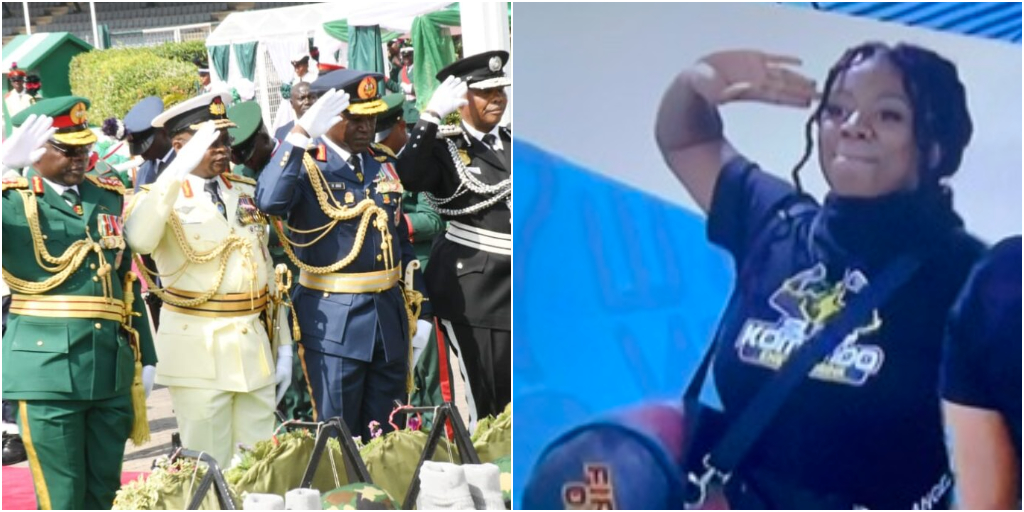
On January 15 every year, Nigerians celebrate the Armed Forces Remembrance Day (AFRD) in memory of the men and women who’ve lost their lives and those who continue to risk their lives in service to protect the nation.
To commemorate this year’s celebration, I asked Nigerians to share their most memorable experiences with military officers. These are their stories.
Beatrice* 24
I once boarded a bus to work, and when it was time to pay, this conductor suddenly hiked the price to ₦500. He said that was what he told me before entering the bus, even though he clearly said ₦300. I got into a heated argument with him, and I was hoping someone in the bus would join me, but everyone just kept to themselves. We got to a bus stop and picked up a soldier, and I got the ginger to continue my fight with the conductor. It took only a “You no go give am her change?” comment from the soldier to get him to fall in line. That was how I got my money back.
Ibrahim* 31
When I was in NYSC camp, the soldiers didn’t hesitate to mention how they won’t tolerate indiscipline. But I’d heard some of my mates mention how they often stayed back in the hostel to miss morning drills, so I decided to try it one day. Unfortunately, it was the day I chose to stay back that the soldiers carried out a morning raid. I hid under a bunk and didn’t answer the repeated calls to “Come out of your hiding place”. I just started begging after one soldier’s torchlight fell on me. When another colleague called out to him and asked if there was anyone in the room, he looked me in the eyes, said no and left the room. I was so happy. I found him later that week and treated him to lunch.
Hadiza* 28
I befriended a soldier during NYSC, and he made the entire experience fun for me. I had my first plane flight because of him. We visited restaurants, museums and the zoo. There were times we attended parties and clubbed together. Everything just felt so romantic because we played and gisted a lot, but I knew it was short lived. He still reaches out to me even though it’s been over five years since we last saw each other.
[ad]
Debola* 35
Area boys used to disturb us in my house. They were constantly fighting, harassing residents for money and just constituting a nuisance. I had enough one day when they threatened to deflate my tyres if I didn’t pay them for parking on the street. I was so livid that I threatened to bring soldiers to discipline them. It wasn’t like I knew any military person; I just boarded a bus and went to the barracks before Ojuelegba. The guys at the gate didn’t let me in, but I broke down in tears and just narrated what happened. To my surprise, they informed a superior and that was how about four of them followed me back in a military vehicle. They didn’t even need to do much, their presence threatened the area boys and they left me.
Hariff* 34
I grew up in Bonny Camp, and I think that experience made my childhood a lot of fun. We were one of the few civilians living there at the time; most of my friends had military parents. I remember watching the soldiers during their training and how I’d tell my parents I wanted to be a soldier when I grow up. Back then, I couldn’t understand why people feared military men. They were my neighbours, the traders were military people as well. They were just everywhere. It was such a cool flex at the time. I’d tease my friends at school when anyone tried to act funny. We left Bonny Camp while I was in secondary school, but I’m still in touch with some of my friends who had military parents.
Deji* 27
We were on our way to a family friend’s wedding in Osogbo state when our car broke down somewhere around Ikire. We weren’t familiar with the town, so we were worried and just wanted to get a mechanic ASAP. We’d barely been there for 20 minutes when these guys came out of nowhere and started harassing us. Luckily, a military patrol vehicle passed, and my aunty just screamed, “Officers, help us. Officers, help us!” Surprisingly, they stopped and the area guys dispersed before the officers alighted from their vehicle. They asked what happened, and we narrated our ordeal. These guys actually stayed with us for about three hours till we got a mechanic who fixed our car. It felt like we were a VVIP political family. We tried to settle them before we left, but they refused. They just waved us goodbye and that was it.
Kachi* 41
I had to do corporate bambiala once after I lost my wallet on my way home. We didn’t have Bolt or Uber at the time so I couldn’t just order a ride on my phone. I approached random people, but some of them didn’t even let me explain before they gave excuses. I couldn’t blame them because I’d have done the same if I were in their shoes. After two rejections, I saw this female naval officer and approached her. She was apprehensive at first, but unlike the others, she listened to my story. I was happy and thought she’d give me money, but she didn’t. Instead, she put me on a bus and told the driver not to collect money. She was a lifesaver. I tried looking out for her the next few times I was at that bus stop, but I never saw her again.
If you enjoyed this, you should read about this soldier who’s looking forward to a civilian life: A Day in the Life: The Soldier Eagerly Looking Forward to Civilian Life


